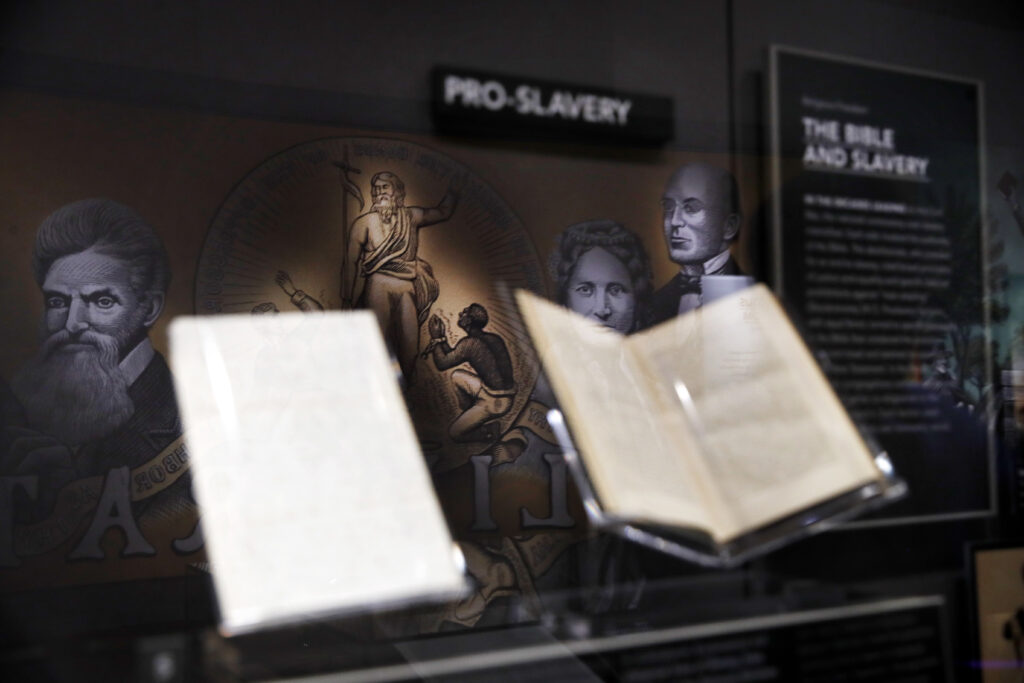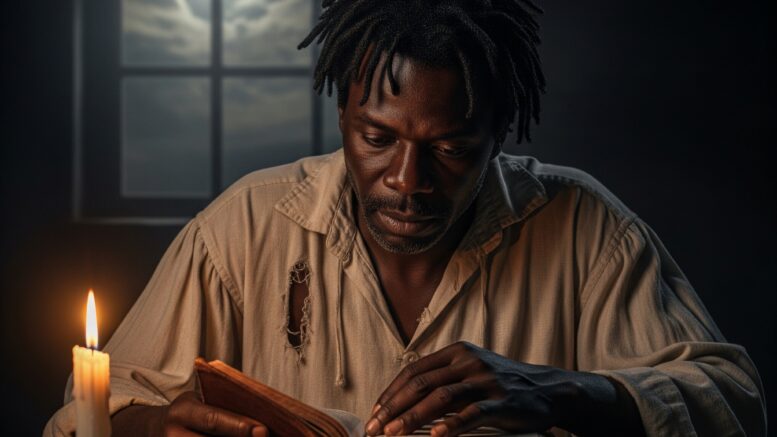It’s one of the most telling pieces of history the public rarely hears about: the Slave Bible
For instance, consider Hobby Lobby president Steve Green’s discovery. He aimed to educate and evangelize through a Bible museum. However, he was shocked to learn about a Christian missionary project called the Slave Bible (Museum of the Bible/Andrew Martin).
British missionaries in the West Indies distributed the Slave Bible in the early 1800s. They censored Scripture heavily, removing most of its 1,189 chapters. As a result, only 232 chapters remained (British Museum).
What Was Removed?
Missionaries stripped out everything about freedom, justice, or God’s wrath on oppressors. For example, they removed verses like Exodus 21:2, which speaks of liberation. Instead, they kept passages that enforced submission.
They didn’t trust slaves to read. They feared literacy would spark rebellion. Consequently, they handed slaves propaganda.
Why the Slave Bible Mattered
Consider Exodus 21:2, which promises freedom after seven years. Missionaries saw this as a threat to their control. Thus, they cut it out to keep slaves obedient.
What Was Left?
Theology became distorted, focusing on obedience and submission. In this way, Christian education turned into spiritual suppression. Missionaries weaponized faith to reinforce slavery.

This Still Happens—Just in Disguise
Some churches today still cherry-pick Scripture. They highlight verses that align with their biases. Meanwhile, they ignore challenging teachings about justice or equality.
Clearly, the Word of God is being censored—not by removal, but by neglect. This isn’t the full gospel. It’s a curated version, much like the Slave Bible.
The truth isn’t easy to hear. It involves editing, burying, and ignoring Scripture’s harder parts. Yet, this selective teaching persists today, even in modern faith communities.
Biblical Literacy is No Accident
The goal isn’t to educate—it’s to control. Many Christians remain unaware of the Bible’s full message. For instance, softer teachings promote messages of God’s love, which are true but incomplete.
The modern Slave Bible may be more subtle, but it’s still here. It’s preached in pulpits every Sunday.

Conclusion: Read the whole book
The Slave Bible teaches one thing clearly: selective Scripture isn’t the gospel. It distorts the truth. Moreover, it creates fear in those who learn it.
That’s why believers must seek the dangerous parts. They need to read every verse, chapter, and book.
Want to be free?
Pick up the Bible.
Read every word.
Discover it.
📖 Most people never read past the verses they’ve been handed.
You’re not like most people.
You’re the remnant.
If you’re ready for more full-strength truth—without apology—
📬 Follow and subscribe to The Biblical Man below:
👉 Biblical Man






